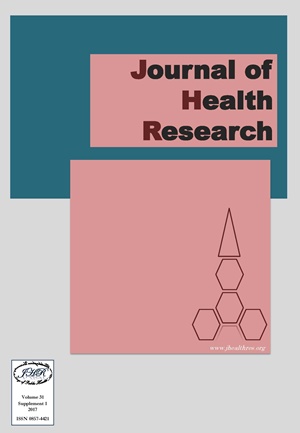Knowledge, Attitude, and Behavior toward Premarital Sex among Adolescents in Indonesia
Keywords:
Premarital sex, Adolescent health, Adolescents, IndonesiaAbstract
Background: Currently in Indonesia, premarital sex is one of the reproductive health issues that has been rising. More importantly, the number of adolescents who engage in premarital sexual intercourse is initiated at a younger age and has increased significantly. Little is known about the attitudes, knowledge, and sexual behavior of teenagers in Indonesia. It is important for public health personnel to examine this topic in order to improve gender studies, policy formulation, and prevention and intervention programs in Indonesia.
Method: This study employed secondary data from the National Medium Term Development Plan 2015 (RPJMN 2015). A total of 42,338 Indonesian adolescents aged 15 to 24 years old were selected for analysis. Logistic regression was applied to examine the influence of gender, age, education, schooling status, working status, area, region, knowledge about HIV and reproductive health toward to attitudes toward premarital sex.
Results: The sample size of this study totaled 42,338 adolescents comprising 22,522 males and 19,816 females. The mean age of the respondents was 18.75. It was found that forty-one percent of the adolescents graduated from senior high school and more than 50% still currently studied in school. Moreover, around 72.1% of adolescents didn’t work while 53.7% of adolescents lived in rural areas. In addition, 30.4% of those sampled live in the Sumatra region. The respondents had a high level of knowledge about reproductive health and HIV (=4.86, SD=2.53). It was found that 1.8% of Indonesian adolescents have agreed in premarital sexual activity. About 25% of respondents reported having experience of kissing and caressing whilst 9.34% reported fingering with the opposite sex. A multiple logistic analysis found that being female, younger age groups, higher education levels, not working, living in rural areas, living in the Java and Bali region, higher reproductive health, lower HIV knowledge and contraceptive knowledge influenced on protective attitudes regarding premarital sexual intercourse.
Conclusion: The findings suggest that sexual and reproductive health education should be provided formally in schools and universities to include education on reproductive health and HIV knowledge in Biology or sport and health classes. Accordingly, having easy access to reproductive health information and providing information on against unhealthy reproductive activity is expected to prevent premarital sex and further reduce the risk of unwanted pregnancy and sexually transmitted infections. One of the roles of governments and the private sector in this regard should be to provide information and reproductive health services for at-risk adolescents.







